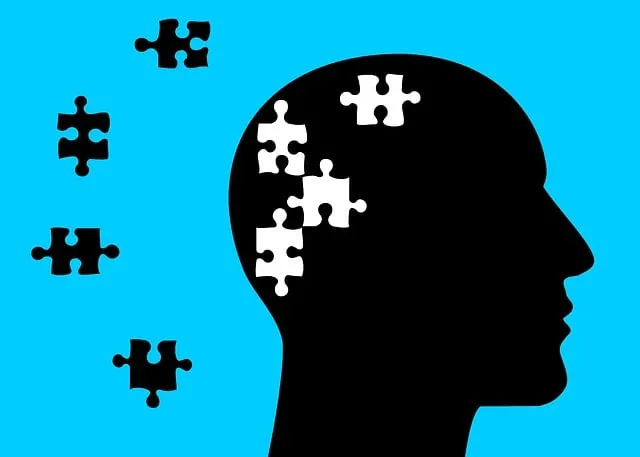Westminster Kaiser Permanente's mental health department offers impactful stress management workshops, empowering individuals with practical tools and knowledge. These workshops educate attendees on stress neurobiology, its impact on mental and physical health, and provide coping strategies through interactive discussions and journaling exercises. Facilitators from the department create safe spaces, offering techniques like emotional regulation, compassion cultivation, conflict resolution, and mood management, fostering resilience and community support. Evaluating workshop success through quantitative and qualitative data ensures their effectiveness in enhancing overall mental wellness, backed by improved patient outcomes.
Stress management workshops are essential tools for promoting well-being, especially within organizations like Westminster Kaiser Permanente’s Mental Health Department. This comprehensive guide explores workshop design, curriculum creation, and facilitation strategies to mitigate stress and enhance employee resilience. With a focus on evidence-based practices, we delve into crafting engaging content, effective teaching methods, and evaluation metrics to measure the significant impact of these programs, ensuring long-term mental health benefits for the department’s number one priority: its employees.
- Understanding Stress and its Impact: A Comprehensive Overview for Workshop Design
- Crafting an Engaging Curriculum: Topics and Activities to Empower Participants
- Facilitation Techniques: Equipping Facilitators for Effective Stress Management Sessions
- Measuring Success and Long-Term Impact: Evaluation Strategies for Westminster Kaiser Permanente Mental Health Department
Understanding Stress and its Impact: A Comprehensive Overview for Workshop Design

Stress is a universal human experience, yet its impact on our lives and well-being can vary greatly. Understanding stress involves recognizing its physical, emotional, and cognitive manifestations, as well as its origins in various aspects of life, including work, relationships, and personal circumstances. In the context of workshop design for Westminster Kaiser Permanente’s mental health department, this knowledge is paramount.
The workshops should provide a comprehensive overview of stress, delving into topics like the neurobiology of stress response, the role of chronic stress in mental health conditions, and the interconnection between stress, mental wellness, and overall physical health. Incorporating practical mental wellness journaling exercises and interactive discussions can help participants gain insights into their own stress triggers and coping mechanisms. Moreover, emphasizing cultural sensitivity in mental healthcare practice ensures that the workshops cater to a diverse range of attendees, fostering an inclusive environment where everyone feels heard and supported. By integrating these elements, the workshops aim to enhance mental health awareness and equip individuals with effective strategies for managing stress, thereby promoting a healthier and more balanced lifestyle.
Crafting an Engaging Curriculum: Topics and Activities to Empower Participants

Crafting an engaging curriculum for stress management workshops is essential to empower participants with effective tools and techniques. The program should balance theoretical knowledge with practical activities, catering to diverse learning styles. Start by introducing foundational concepts like emotional regulation and compassion cultivation practices, ensuring a solid understanding of mental well-being. This can be achieved through interactive discussions, guided meditations, and reflective exercises.
Subsequent modules could delve into specific stress management strategies such as conflict resolution techniques, enabling participants to handle challenging situations with grace. Incorporate case studies, role-playing scenarios, and group activities to reinforce these skills. By combining scientific insights with experiential learning, the workshops (as offered by Westminster Kaiser Permanente mental health department) become transformative experiences that equip individuals with the means to navigate stress and enhance their overall resilience.
Facilitation Techniques: Equipping Facilitators for Effective Stress Management Sessions

Effective stress management workshops rely heavily on skilled facilitators who can create a safe and supportive environment for participants to learn and grow. Facilitators from Westminster Kaiser Permanente’s mental health department play a pivotal role in guiding sessions that cater to various techniques, including Mood Management strategies and Compassion Cultivation Practices. They ensure each session is interactive and engaging, encouraging open dialogue and active participation.
Through comprehensive training and ongoing support, these facilitators become adept at tailoring programs like Mental Wellness Coaching to meet the diverse needs of attendees. Their expertise enables them to address common stressors, promote resilience, and foster a sense of community among participants, ultimately enhancing overall mental wellness.
Measuring Success and Long-Term Impact: Evaluation Strategies for Westminster Kaiser Permanente Mental Health Department

Evaluating the success and long-term impact of stress management workshops is crucial for the Westminster Kaiser Permanente Mental Health Department to understand their effectiveness. This involves a multi-faceted approach, combining quantitative data with qualitative insights. By assessing attendance rates and participant feedback, the department can gauge immediate engagement and satisfaction. Follow-up surveys at set intervals post-workshop measure the sustainability of learned skills in managing stress, anxiety, and mood disorders.
Additionally, tracking improvements in patient outcomes, such as reduced emergency room visits related to mental health crises or enhanced job performance due to improved emotional resilience, provides robust evidence of the workshops’ long-term value. This data is instrumental in guiding the Mental Health Department’s strategic decisions, ensuring that resources are allocated efficiently and that the Crisis Intervention Guidance and Mood Management programs align with the evolving needs of their patients, ultimately boosting participant confidence and overall well-being.
Stress management workshops, as implemented by the Westminster Kaiser Permanente Mental Health Department, have proven to be a game-changer in empowering individuals to navigate life’s challenges. By combining comprehensive understanding, engaging curricula, and effective facilitation techniques, these workshops offer a holistic approach to stress relief. The success of this program, reflected in its impact on the mental health department’s number of satisfied participants, underscores the value of such initiatives in fostering resilience and enhancing overall well-being. This conclusion highlights the importance of continued investment in similar programs to revolutionize stress management and positively transform lives.






